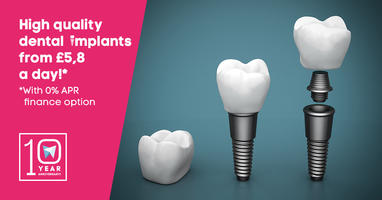A woman’s body undergoes a lot of changes during pregnancy.
Aside from having to take in more nutrients, both for the developing fetus and the mother, and aside from having to eat nutrients one does not normally eat (like folic acid, for example), the body also undergoes a lot of changes. The stress of carrying a child to full term is quite extensive physically speaking, and may deplete nutrients and minerals from our body that we might not even know about. Top this off with the fact that changes in the body occur rapidly, and it will become understandable why so many women have a whole host of questions about what medical conditions are “normal” and which are signs of something going awry.
There is also the issue of what procedures to get or to avoid so as to not damage the fetus or the mother. Dental implantation, a form of invasive surgery, always raises doubts in expecting mother’s minds. I want to take a little time to clear up some of the myths floating around on the internet, and clear up as much as I can regarding dental implantation while pregnant.
First of all, many people express concern about the anaesthetic, and whether or not the child will experience any discomfort, or negative effect from receiving it through the umbilical cord. Most dental practices have anaesthetic that is safe and will not be imbibed by the fetus, or if imbibed, will not cause any effect what so ever. Make sure to mention that you are pregnant if booking over the phone or via e-mail, and the staff there should know what to administer. Another concern is having an x-ray taken. This is a legitimate concern, as x-rays do produce minimal amounts of gamma radiation, to which the fetus is particularly susceptible. However, the amount should not cause any problems to the fetus, and if the x-ray is necessary, it is probably advisable to have it done.

As for the actual surgery, that is a little bit more complicated. Many dentists suggest that it is not suitable to undergo any but life saving surgeries, as the stress of an invasive surgery can cause all sorts of things to go wrong, as this is the time when the organs are being formed, and invasive surgery causes extra stress on the mother’s system, which can have unknown and unknowable consequences. As dental implants are not usually life saving, dentists suggest getting it done in the second or third trimester. Almost all dentists suggest consulting with your gynecologist or obstetrician first, as they will know more about the baby and the health of the mother and the fetus, and the specific, intricate details about the pregnancy. Most dentists and indeed most medical personnel would advise against getting elective surgeries of any kind done during the first trimester, and some say, wait until a few months after delivery to replace that tooth.
An abscessed tooth, or a tooth that needs extracting should be extracted, as constantly fighting off a disease is not only painful, but can unnecessarily tax an already burdened immune system, and this can have negative outcomes. It is also interesting to note that gingivitis occurs in almost 30% of pregnant women, not to mention the usual bleeding of the gums. Another interesting thing that about one third of pregnant ladies will experience is a tiny tumor on the gums, which can be red or purple in color. These disappear a few months after delivery, and are a quite normal part of pregnancy. They can be removed if they are painful (i.e: close to or pressing on a nerve),. if they bleed excessively, or if they are preventing the patient from eating. These tumors are always benign, and always disappear in time. Gingival enlargement is also normal, and should not be treated unless painful or actually preventing normal function, i.e if they are covering the teeth.
To sum it all up, the answer is that getting dental implants is not so safe in the first trimester, and getting them later on is safe, but not advisable if it can be helped, as the anaesthetics, antibiotics and the x-rays involved can tax the mother’s and the fetus’ immune system.
image: 1.

